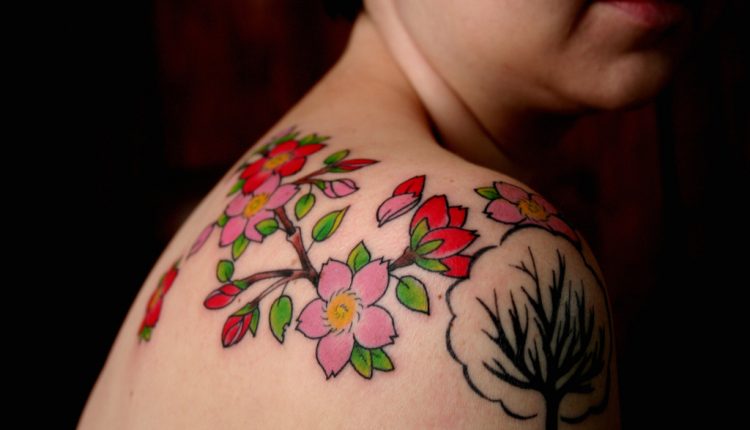Popular Japanese Tattoo Meanings, Symbolism and Designs
There has been a phenomenal growth of traditional Japanese tattoo designs in the past few years. It used to be that tattoos were relegated to the Yakuza or Japanese gangs and the criminals in the society. Just the sight of a tattoo used to and still can strike fear into people. However, Japan is a rapidly changing country, and they are starting to see the value in tattoos and more and more people have a deep respect for them. For most tattoo artists and tattoo enthusiasts alike, Japanese designs have always been sought after. Here are some Japanese tattoo meanings and design ideas to help give you a guide for some possibilities if you are interested in getting such a design.
Cherry Blossom Tattoos
For the Japanese, the cherry blossom is seen to represent life itself. The flower is a thing of great beauty. It is strong in that is pushes itself and blooms in harsh conditions and climates and often comes out when the snow is first melting. Yet it is paradoxically fragile at the same time. It is fragile because it will only last a few days, and then it will fall from the tree and land in the snow—the Japanese view this as a representation of life itself. Life should be lived to extreme beauty, and every day should be lived to it’s fullest. Yet one must always be aware of the possibility of death and therefore, with the eventuality of death live life even more thoroughly. This is a great tattoo and a symbol that is laden with powerful reminders and a great guide to how each individual should live their life.
Koi Fish Tattoos
Koi fish are probably the second most powerful symbol in tattoo designs in general but also fro the Japanese. Koi fish can be seen in front of almost every temple throughout Japan. The myth states that the Koi fish swim back upstream against the current to read a bridge or a gate eventually. If they can make it to the gate, they are turned into dragons and magically fly away to start a new life. The symbolism behind this design is one of perseverance which is a profound and essential concept for the Japanese. In fact, they have many more words to describe persistence, effort and sticking with something in the language then we do in English.
Hannya Masks
Hannya masks are scary looking and demonic masks. The mask comes from the famous Kabuki plays in Japan, and it depicts a woman who has been consumed with rage over a lover or someone that has not returned her love. There are different variations as each Kabuki play has a different interpretation. At any rate, these masks represent a jealous woman. However, they have been widely used in Japanese tattoos and also here in the west. When they are used in tattoo in it is believed that they will ward off evil spirits and bring good luck to the person wearing it. Japanese will also sometimes but these up for display high in the room of their house to ward off evil spirits.
Samurai
Samurai, of course, lived by the code of Bushido. There is not enough room here to fully explain the principle of Bushido, but it deals with living life to the fullest, being prepared to die in service and being loyal and emphatic. The concepts of Bushido are pretty much at the heart of all Japanese values and morals and also what is taught to most young kids over and over again through stories. You could say the code of Bushido is the heart of the Japanese culture and beliefs. Samurai’s and samurai tattoos, of course, are the best symbols of these beliefs.

